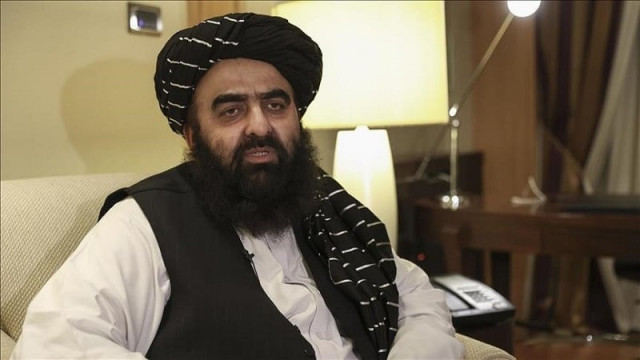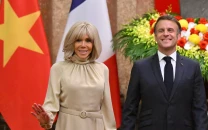Pak, TTP were close to a deal, claims Afghan FM
Muttaqi says only outstanding issue was merger of erstwhile Fata

Interim Afghan Foreign Minister Amir Khan Muttaqi has claimed that most of the issues between Pakistan and the banned Tehreek-e-Taliban Pakistan (TTP) had been sorted out and that both were close to striking a deal but Islamabad backed out.
Muttaqi made these claims during a conversation with Senator Mushahid Hussain Syed in Tehran on the sidelines of the conference on Palestine hosted by Iran.
Mushahid, who represented Pakistan at the conference, told The Express Tribune here on Monday on his return from Tehran that he had a detailed informal discussion with Foreign Minister Muttaqi over dinner.
"I didn’t represent the government while talking to Mr Mutaqqi," he clarified, adding that the conversation was based on my informal interaction with the Afghan foreign minister in Tehran, whom he knew from his journalistic days when he was the information minister.
The focus of the discussion was on the current state of relationship between Pakistan and the Afghan Taliban on the issue of the banned TTP, according to Mushahid.
The Afghan foreign minister told the Pakistani politician that his country was keen to resolve all issues with Islamabad through dialogue.
Read also: Pak-Afghan relations — DI Khan attack and TTP
Muttaqi said after a series of meetings between Pakistani officials and the TTP leadership, majority of the issues were sorted out. Both sides were close to striking a deal brokered by the Afghan Taliban, according to Muttaqi.
The only outstanding issue was the merger of erstwhile Federally Administered Tribal Areas (Fata). The TTP wanted the reversal of Fata merger. However, Muttaqi claimed Pakistan backed out of the talks and hence the stalemate.
Pakistani officials, nevertheless, blamed the TTP for using the talks to regroup.
Islamabad set clear conditions for the TTP for any deal. Those include accepting the writ of the state, adhere to the Constitution and law and complete disarmament. Pakistan termed the Fata merger a redline.
Giving his sense of the interaction with Muttaqi, Mushahid said some points were noteworthy.
Read: DI Khan attack: Taliban dismiss Pakistan’s claim of Afghan involvement as ‘baseless’
"First, reflecting Afghan pysche, Mr Mutaqqi made it clear that ‘Afghanistan instinctively reacts negatively to pressure and rejects any intimidation or threats from anyone’."
He jokingly quoted an Afghan saying that “Afghans react adversely to any pressure and you can’t force an Afghan to even go to Paradise under pressure”!
"Secondly, based on my conversation with Foreign Minister Mutaqqi, an important but disturbing takeaway is that there seems to be an absence of any high-level channel of communication between the top leadership in Islamabad & Kabul, hence serious issues get embroiled in recriminations, blame game & finger pointing, which is a major failure for relations amongst two close neighbours with shared interests," Mushahid noted.
"In other words, our most important foreign policy relationship is now reduced to having a ‘dialogue of the deaf’! As Mr Mutaqqi told me: ‘please don’t overreact on incidents or accidents, as these do not emanate from any policy from our side, and suddenly these accidents become a pretext for closure of the border, as cross-border trade & commerce and human movement should be delinked from incidents or accidents."
In a tweet, Mushahid wrote: "Great meeting over dinner with Afghan Foreign Minister Amir Khan Muttaqi, he’s warm & positive towards Pakistan & keen to settle contentious issues through dialogue; however, in his soft, low-key style, he made it clear: ‘Afghan people may be poor but they have pride & they don’t like being pressured or threatened by anyone, as the USSR & USA discovered to their lasting regret’!"



















COMMENTS
Comments are moderated and generally will be posted if they are on-topic and not abusive.
For more information, please see our Comments FAQ